This article is part of our 2019 Rewind. Follow along as we explore the best and most interesting movies, shows, performances, and more from 2019.
Every year, revelatory new acting talents emerge to turn our heads and brighten the cinematic horizon. 2019 has been no different, introducing us to a wealth of up-and-coming performers from across the world. Some were complete unknowns emerging from obscurity — Jimmie Fails and Honor Swinton Byrne, for examples — while others are familiar faces seen in a dramatically new light. Consider Noah Jupe: despite starring in a record-breaking blockbuster in 2018, it’s 2019’s indie darling Honey Boy that has heralded his arrival as a major one-to-watch.
As Jupe’s example shows, there is no hard-and-fast rule, no sure route to breaking out. Whether they announced themselves via supporting parts in foreign thrillers, a couple of scenes in a Tarantino movie, or lead roles in intimate self-portraits, together, 2019’s breakout actors have illuminated the myriad paths there are to stardom. We take a look at how 19 exciting new talents left their indelible mark on the year’s cinema below:
Jessie Buckley (Wild Rose)
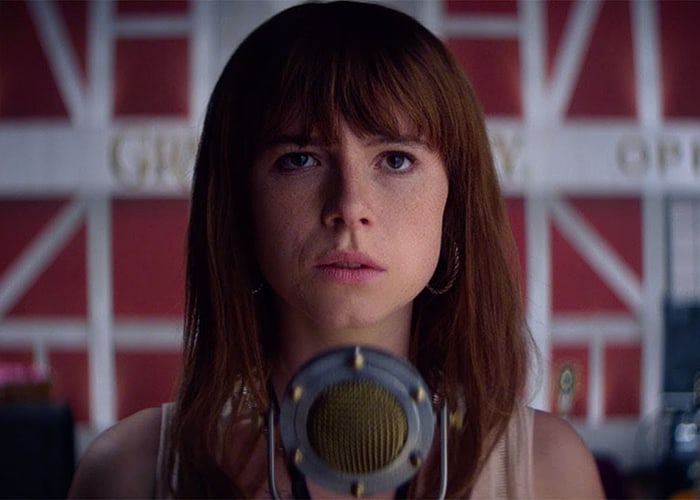
Jessie Buckley didn’t exactly come out of nowhere; she was first launched into the public eye way back in 2008, when she came in a close second place on Andrew Lloyd-Webber’s musical-themed reality show I’d Do Anything. More recent performances in Taboo, Beast, and the BBC’s adaptation of War and Peace have since reignited her renown, but with star-making performances on both the TV and film frontiers this year, it’s 2019 that has proved to be her banner year.
Her double breakout can’t have come about as a result of two more contrasting roles: in Chernobyl, she plays a woman whose heartbreaking devotion to her firefighter husband gives the show its human face, while in Wild Rose, Buckley is a raucous presence, playing a Glaswegian ex-con trying to make something of herself through country music. Starkly different though they may be, in both performances, Buckley is instantly endearing, her seemingly bottomless screen charm deepening our emotional fascination with these stories.
Wild Rose, in particular, harks back to Buckley’s musical beginnings and demonstrates how the talents that first launched her to stardom have evolved dramatically since 2008 — and, like her supporting role in Judy, it’s also a winning argument for Buckley as a chameleonic performer. Period settings and brooding characters have tended to define her profile on the small screen, but Wild Rose showcases an entirely different spark you might not have known her capable of if you hadn’t been watching her back in 2008, when Lloyd-Webber told an 18-year old Buckley he saw the “sacred flame of star quality” in her. Eleven years later, she’s ablaze with it.
What’s next: Dolittle; Ironbark; I’m Thinking of Ending Things; Cottontail; Fargo (TV); Misbehaviour
Jimmie Fails and Jonathan Majors (The Last Black Man in San Francisco)
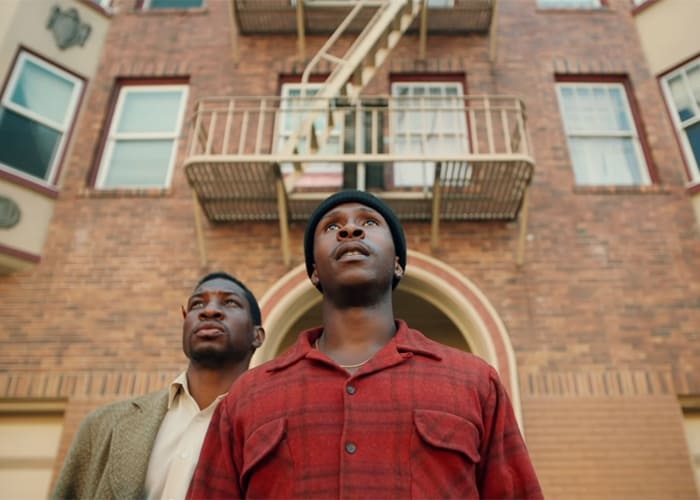
The Last Black Man in San Francisco succeeds at being many things at once: a love/hate letter to San Francisco, a rumination on home, history, and family, and a searing portrait of the human effects of gentrification. Joe Talbot’s debut feature is also remarkable for being a profoundly moving meditation on friendship, a crowning stroke that’s pulled off thanks to the two quietly powerful performances at its heart. Both Jimmie Fails and Jonathan Major’s characters have their idiosyncrasies — Mont (Majors) is a budding playwright given to eccentricity, and Jimmie (Fails, playing a fictionalized version of himself) is consumed by longing for an old family home — and one of the film’s chief triumphs is the way these actors breathe life into such complex parts. But where their performances leave the deepest mark is in the fraternal impression Majors and Fails leave. The rapport between their characters is so easy, so mutually and instinctively harmonious, that the film takes on an almost documentary feel, even if you don’t know it’s based on the life of Fails, a childhood friend of Talbot.
Even amidst harsh circumstances, Mont and Jimmie are starkly, unashamedly vulnerable, and so gentle and supportive of one another that watching The Last Black Man in San Francisco becomes a reminder of how few and far between these portrayals of friendship — tender, generous, full of natural chemistry and free of manufactured conflict — are onscreen, particularly between black male characters. Majors and Fails’ roles, as written, are a rare, beautiful thing, but just as rare are two first-time leading performances so well-matched in sensitivity, strength, and subtlety.
What’s next for Majors: Jungleland; Lovecraft Country (TV); Da 5 Bloods; The Harder They Fall
Park So-Dam (Parasite)
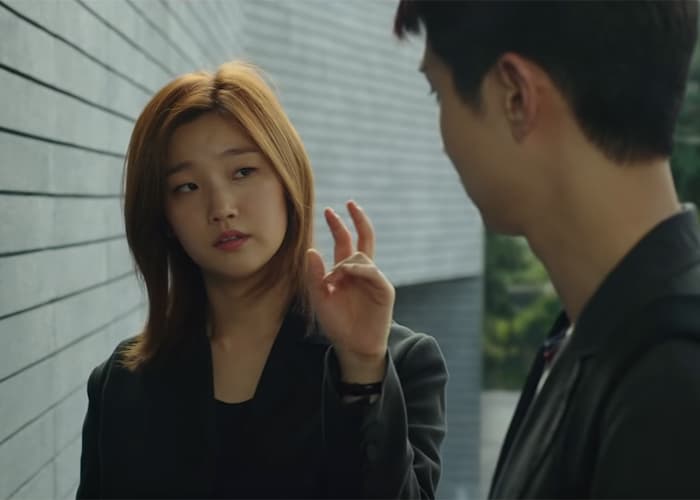
At the center of Parasite, Bong Joon-ho’s biting commentary on social inequality, are the Kims, a tight-knit family of con artists who dupe their way into lucrative jobs working for the wealthy Park family. And of the Kims, perhaps no member is more impressively ingenious than Park So-dam’s Ki-jung, an art school reject and master forger whose quick-thinking and easy sense of authority win her a job as an art therapist-cum-teacher to young Da-Song (Jung Hyun-jun).
Each member of Parasite’s main cast plays an indispensable role in the film’s mirror-like narrative, but if we’re judging performances on their memorability, Park’s stands out by a not-insignificant margin. Part of that is down to how commanding her performance is: her Ki-jung is remarkably resourceful, icily ruthless, and so gleefully cathartic to watch in her early scenes with the Parks. But her character is also Parasite’s most memorable because Park is at the center of the film’s most terrifically unforgettable scene. Her sensational delivery of the “Jessica Jingle” is not just one of the film’s high points; it gives 2019 one of its most iconic, crowd-pleasing movie moments, and its sheer viral force (along with her winning performance) announces Park as a clear international breakout.
What’s next: Bakugan: Battle Force
Tom Mercier (Synonyms)
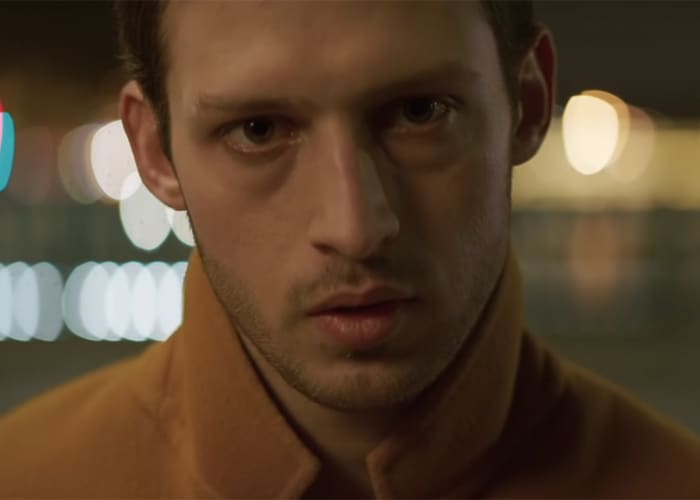
One of the most underseen breakouts of this year comes by way of Tom Mercier’s astonishing lead performance in Nadav Lapid’s Synonyms. Loosely based on the director’s own experiences, Synonyms follows Israeli self-exile Yoav’s (Mercier) attempts to break free from his nationality on the streets of Paris. It’s a highly kinetic movie, drawing a good deal of its frenetic energy from shaky handheld cinematography, but an indispensable source of its intensity comes from Mercier.
A former judo champion and trained dancer, Mercier wields his muscular physicality with confident authority, no more so than in the film’s opening scene: a mesmerizingly choreographed long-take of Mercier first showering, and then frantically running from room to room in a freezing cold Parisian apartment as he realizes all of his clothes and meager belongings have been stolen. As he frequently is in Synonyms, Mercier is entirely nude during this scene, but his nakedness never feels like a peeling back of a protective layer. Yoav is no more exposed — and no less mysterious — in these moments than he is snugly wrapped in the round-shouldered orange overcoat he wears for much of the film. And which must also surely be an instant appointee to the pantheon of cinema’s most iconic outerwear.
Yoav feels like a protagonist in the French New Wave tradition: vehemently anti-authoritarian, impulsive, and a stranger wherever he goes. Like Jean-Paul Belmondo’s Michel in Breathless, Mercier’s wild, intense energy is ambiguous, and uncomfortably so. As desperate and lonely as we know him to be, there’s a fierceness about him that frequently verges on menacing — he has a habit of opening doors by thumping his skull into them, for example. That ominous glimmer makes it hard to completely embrace Yoav, but Mercier plays him with such a moodily entrancing air that, like the characters in the film, we’re far from inclined to push him away. In bringing such an intricate allure and visceral acuteness to Lapid’s fabulist evocation of what it means to be a stranger, Mercier, an unknown before Synonyms, ensures he won’t remain a stranger from our screens in the future.
What’s next: We Are Who We Are (TV)
Vasilisa Perelygina and Viktoria Miroshnichenko (Beanpole)
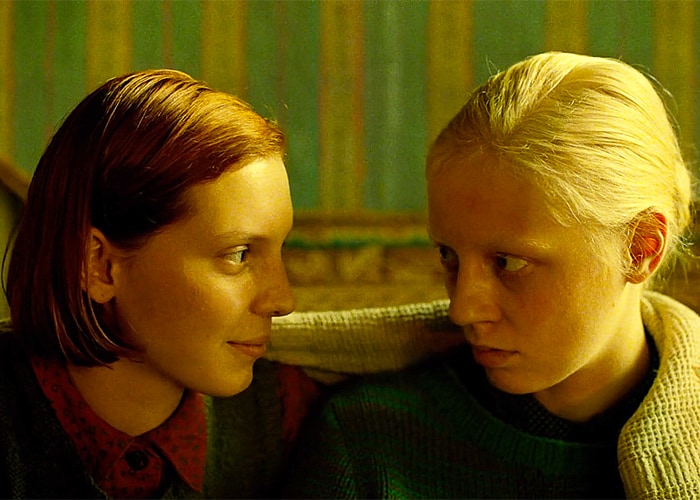
As with this year’s Chernobyl, Beanpole is based on a collection of interviews conducted by oral historian Svetlana Alexievich. And just like HBO’s production, Kantemir Balagov’s film demonstrates an astonishing ability to translate painstaking historical authenticity into a narrative of heart-breaking immediacy. From its Jeremy Irons-lookalike doctor (Andrey Bykov) down to little Pashka (Timofey Glazkov), Beanpole’s largely unknown principal cast is as vital to that effort as the direction, writing, and cinematography. The film could be considered a breakthrough moment for every one of them, their performances are so striking and brilliantly understated across the board.
Glowing the brightest are Vasilisa Perelygina (as Masha) and Viktoria Miroshnichenko (Iya, or Beanpole), whose portrayals of two best friends and former soldiers prematurely hardened and paralyzed by war are hauntingly unforgettable. Alexievich’s book, The Unwomanly Face of War, was born out of the Nobel Prize-winner’s desire to break the silence around Russian women’s service during World War II, a torch Perelygina and Miroshnichenko carry in their deeply nuanced performances. Masha and Iya’s experiences on the frontline have left them with ravaged inner lives.
Masha, the more domineering and worldly of the two, is sometimes brutalized into cruelty, and so selfish she pushes the submissive, devoted Iya to endure the events of the film’s most shocking scene. But Perelygina’s performance constantly signals a vault of emotions buried deep, and in unexpected ways, she matches the desperate vulnerability of Miroshnichenko‘s more fragile performance. These subtle notes bring an authentic complexity to the narrative and its depiction of love – because, for all the havoc it’s wreaked, the trauma of war has also yoked these two women together for life. The film’s final moments lay that bare, but from their very first scene together, Perelygina and Miroshnichenko’s performances never stop hinting at the miraculous power of that bond to transcend all else.
Julia Butters (Once Upon a Time… in Hollywood)
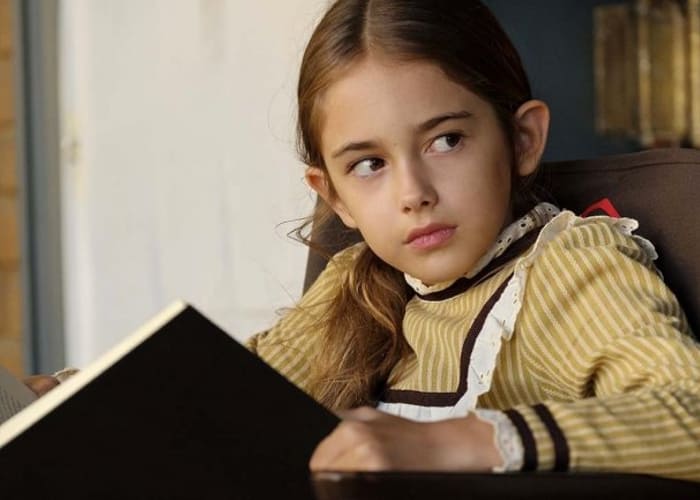
Not many child actors get their big break in a movie dripping with as much A-list prestige as Quentin Tarantino’s (allegedly) penultimate feature Once Upon a Time… in Hollywood. Serendipity played a key part in Julia Butters’ casting: as she tells it, Tarantino specifically requested an audition from Butters after hearing her give a monologue in American Housewife so impressive it distracted him from working on OUATIH’s screenplay. She leaves the same impression on us in just two scenes, both of which she memorably steals from the movie’s star, Leonardo DiCaprio.
In each scene, she’s comically precocious, first delivering a Stanislavski-inspired lecture on acting to DiCaprio’s seasoned thespian Rick Dalton, and later reassuring him that his stunt violence didn’t hurt her. Turns out she throws herself on the floor at home for fun, even when she’s not getting paid for it. Her prematurely sharp wit and candor seem to intimidate Dalton at first, but that only makes the praise she gifts him later (and which inspires one of the movie’s most iconic shots) all the more meaningful. Already a budding director and critic, Butters’ consummate performance here indicates a very bright future ahead.
What’s next: American Housewife (TV)
Himesh Patel (Yesterday)
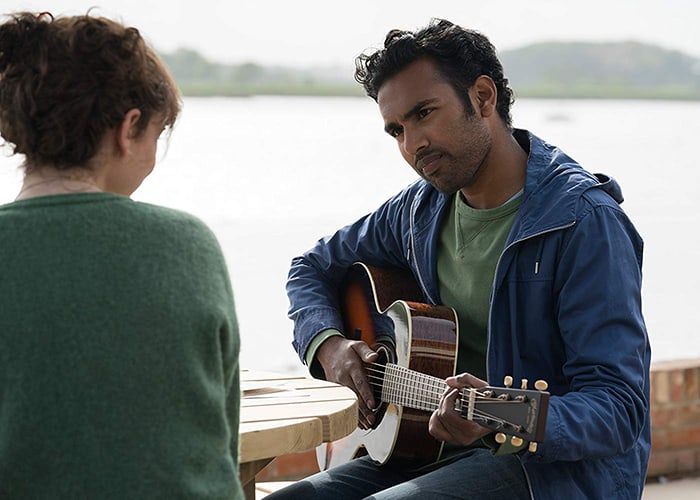
Already a very familiar face in the UK thanks to a longstanding role on the soap opera Eastenders, Himesh Patel made the transition to silver screen look seamless this year. Danny Boyle’s Beatles-themed rom-com Yesterday is a perfect showcase of all Patel’s talents: his comedic timing, natural charm, and previously unknown musical abilities. He’s joined by a cast of famous faces (Lily James, Kate McKinnon, plus cameos from Ed Sheeran and James Corden), but Yesterday makes the case that Patel should have been enjoying similar stardom a long time ago.
He radiates charisma: in early, pre-fame scenes, Jack is instantly winning despite his apparent failures, and when he later transforms into a rock star, Patel has such an easy stage presence that his rapid rise to stardom is totally believable. So is his chemistry with James. This being a Richard Curtis-penned rom-com, Patel and James have to nail a particular blend of endearing cutesiness and British awkwardness, and they triumph together. But there’s only room for one in Yesterday’s spotlight, and Patel’s powerhouse performance makes him entirely worthy of it.
What’s next: Tenet; Station Eleven (TV); The Luminaries (TV); Avenue 5 (TV)
Franz Rogowski (Transit)
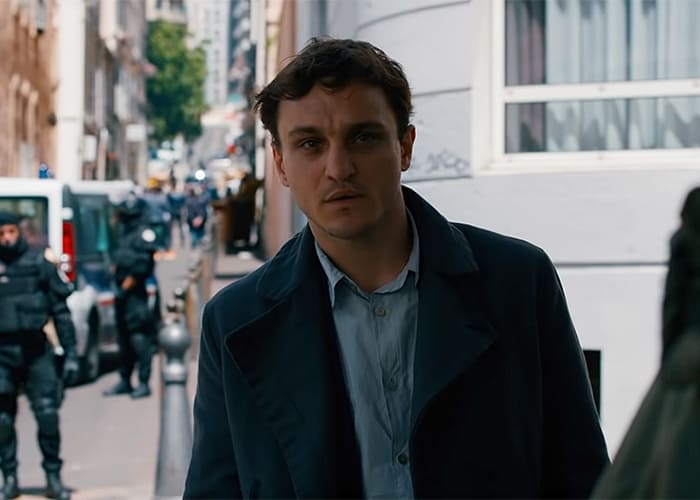
Christian Petzold’s Transit is a beguiling cinematic hybrid, fusing narrative and emotional notes from such greats as Casablanca, The Third Man, Certified Copy, Fred Zinnemann’s The Search and a wealth of assumed identity movies (including Petzold’s own Phoenix). Franz Rogowski’s performance as protagonist Georg mirrors that tapestry, melding enigmatic romantic lead with the tormented conscience of an impostor. He embodies all the alienation and insecurity that comes with displacement to produce a performance as entirely novel as Transit itself.
He does all this largely through his physicality, a particular acting forte of Rogowski’s he previously revealed in a stand-out karaoke scene in Michael Haneke’s Happy End. In that movie and elsewhere, the latent potential for ferocity hinted at in Rogowski’s solid physical presence often takes center stage, but in Transit, that same quality is juxtaposed with a near-imperturbable air of mildness. All this makes for a gorgeously complex performance, but what makes Rogowski’s acting particularly exceptional is that he pulls it off with relatively few lines to speak. With such expressive talents in his arsenal, Rogowski is one of the most exciting rising stars to come along in recent years.
What’s next: Freaks Out; Heikos Welt
The post The Breakout Performances of 2019 appeared first on Film School Rejects.

0 comments:
Post a Comment